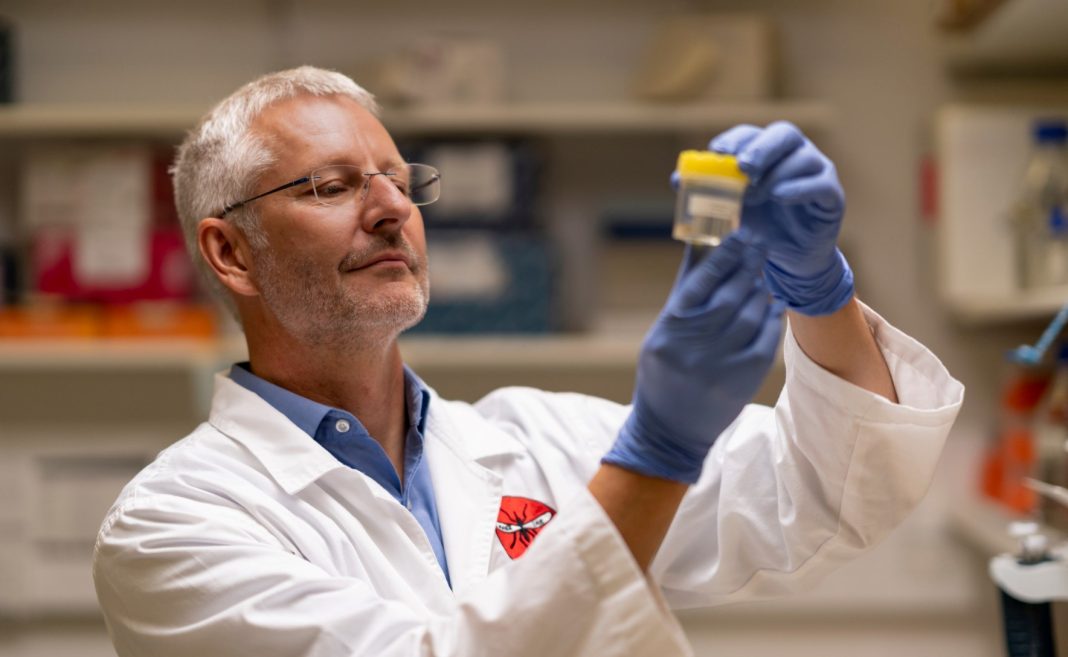A new ‘Trojan horse’ method involving cholesterol, a basic building block of life, could lead to more effective and longer-lasting treatments for deadly diseases caused by parasites, including malaria, Australian National University scientists believe.
More than a quarter of Australians over the age of 50 take cholesterol-lowering drugs to prevent heart disease and strokes, but our bodies also need cholesterol to survive.
The researchers have developed a Trojan horse method that tricks malaria parasites into ingesting a fatal dose of drugs by exploiting the parasite’s need for cholesterol to survive. By attaching cholesterol to drugs, the scientists can “smuggle” the drugs into the parasite where they can exert their killing effect.
Lead researcher Professor Alex Maier, a parasite expert at the ANU Research School of Biology, recently named one of Australia’s best science teachers, said the Trojan horse method of smuggling drugs into the parasites is three to 25 times more effective at eliminating the parasites than drugs that are not attached to cholesterol.
“Due to its bad reputation, people often forget that cholesterol is a basic building block of life and humans and animals need it to function and survive,” Professor Maier said. “Parasites are particularly desperate for cholesterol, since they have lost the ability to make their own.
“Since parasites can’t produce cholesterol of their own, they steal it from their hosts and stockpile it.”
After a mosquito injects the malaria parasites into humans, the parasites eventually enter red blood cells where they hide from the immune system.
Although malaria can be cured with drugs, malaria parasites are smart. They continually find ways to adapt and build resistance to therapies, keeping scientists on their toes.
But the ANU scientists say their new technique, which disguises the drugs under the veil of the cholesterol, addresses this long-standing issue.
“Existing drugs used to treat malaria are taken up passively by the parasite, meaning they’re not as effective as they could be,” Professor Maier said.
“By attaching the drugs to cholesterol, the parasite actively latches onto and eats the cholesterol. This allows us to smuggle drugs into optimal killing zones inside the parasite where the drugs can inflict the most damage.
“Using this approach, we can also repurpose existing drugs that have lost their bite and make them effective again. Essentially, we’re giving new life to existing drugs that have since become redundant.
“This research also paves the way for the development of new, more efficient drugs that are also cheaper to manufacture.”
According to the ANU scientists, this new drug delivery system could also be used to treat other diseases including giardia (an intestinal disease responsible for causing diarrhoea) and leishmaniasis (a skin, mouth, nose and throat disease that disproportionally impacts some of the world’s poorest people; if not treated, it can be fatal).
The findings also have implications for the agricultural industry, as parasites can infect and kill livestock, leading to billion-dollar losses for farmers. Professor Maier said the research could unlock new and more effective therapies to treat parasitic diseases in companion animals and livestock, which would prevent billions of dollars in damages and provide a major boost to the agricultural industry, including in Australia.



